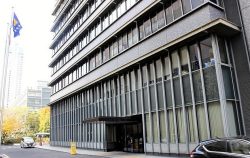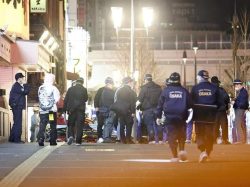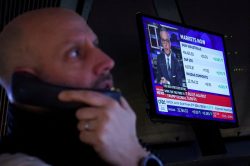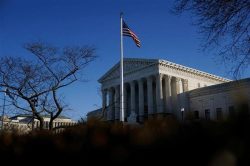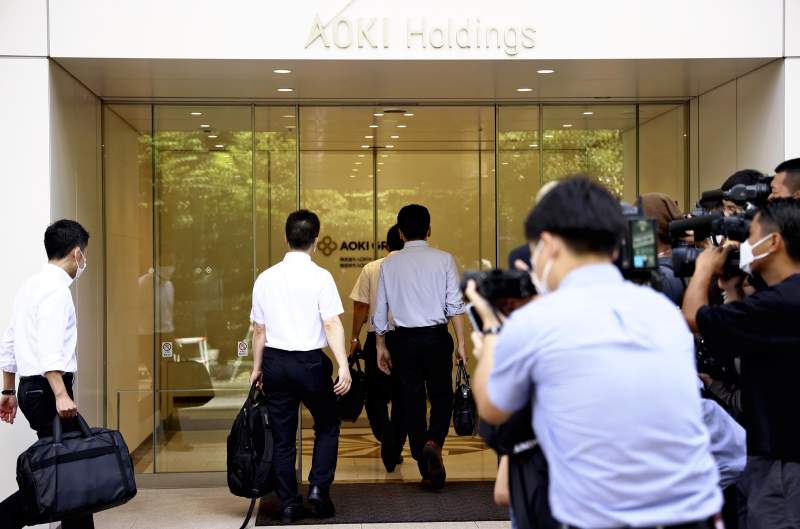
Officials from the special investigation unit of the Tokyo District Public Prosecutors Office enter the head office of Aoki Holdings Inc. in Tsuzuki Ward, Yokohama, on July 28.
6:00 JST, August 19, 2022
The arrest of former Tokyo 2020 organizing committee executive Haruyuki Takahashi and others on Wednesday came after a monthslong investigation into a money trail that dates back to the scramble among companies for sponsorship rights for the Tokyo Olympics and Paralympics.
How did the investigation unfold, and what lies ahead?
Takahashi walked into the Tokyo District Public Prosecutors Office at about 1 p.m. Wednesday and was arrested almost immediately, according to sources.
The office’s special investigation unit arrested Takahashi, 78, on suspicion of receiving ¥51 million in a bribe from the Yokohama-based businesswear retailer Aoki Holdings Inc., a sponsor of the Games.
“The Olympics are a highly public event,” a senior prosecutor said to The Yomiuri Shimbun. “If improper payments were indeed changing hands, that corruption must be driven out.”
The unit launched a secret investigation this year after becoming aware that several companies were rumored to have wined and dined Olympic-related officials.
During the investigation, the unit found out that large sums of money had been paid by the Aoki side to Commons Inc., a Tokyo-based consulting firm, of which Takahashi is the president. The prosecutors started questioning Aoki officials on a voluntary basis from about April.
“We had high hopes that Mr. Takahashi’s influence could help us [get involved] in the Olympics,” a senior Aoki official told the prosecutors during questioning. Prosecutors were assembled from around the country to join what had become a full-blown investigation as the view that the alleged payments constituted a bribe gained traction.
Not smooth sailing
The “official authority” of Takahashi as an organizing committee executive has been a major issue in the investigation.
Under the special measures law for the Tokyo Olympics and Paralympics, executive board members of the organizing committee were regarded as quasi civil servants. If they accepted cash or gifts in connection with their duties, they could be charged with bribery, just as a regular civil servant would be.
However, under the committee’s article of incorporation, a board member’s authority pertains only to operations related to the preparation and running of the Games, leaving their official authority somewhat vague.
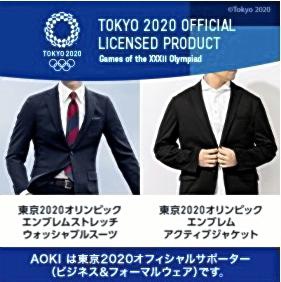
Part of an Aoki press release featuring a suit that was one of its licensed Games products
The special investigation unit obtained documents, including one that stated Aoki officials had met with Takahashi before the company was selected as a sponsor and handed him a request conveying the company’s desire to be involved in the Games.
The unit considered this to be evidence indicating Aoki had requested that Takahashi give the retailer favorable treatment in his role as an executive board member, and decided this constituted the crime of receiving a bribe in exchange for offering a favor.
“When the details of the request and the favor offered became clear, it showed the board member did have influence,” a senior prosecutor said.
Since about July, the special unit conducted searches over several days at locations connected to the case. The unit also started questioning Takahashi voluntarily around the same time. The former Games executive repeatedly denied any wrongdoing, and while he admitted to providing consulting services, he insisted that Commons had given advice on sports “in general.” Prosecutors apparently decided that making an arrest would be necessary to uncover the truth behind the matter.
Purpose of the payments
In about January 2017, Takahashi allegedly sounded out former Aoki Chairman Hironori Aoki about the retailer becoming a sponsor of the Games. About eight months later, in September that year, Commons and Aoki signed a consultancy deal.
The ¥51 million, the amount that Takahashi was arrested on suspicion of receiving as a bribe, was paid as consultancy fees based on this contract.
The investigators discovered that the contract was inked about one year before Aoki was selected as an Olympic sponsor. They believed the consultancy services were scant on substance, and that the money provided constitutes a bribe.
Despite this, Takahashi has continued to deny the allegations. Evidence of whether the ¥51 million amounted to remuneration for Takahashi to use his influence in the committee at the request of Aoki will hold the key to this case.
Top Articles in Society
-

Man Infected with Measles Reportedly Dined at Restaurant in Tokyo Station
-

Man Infected with Measles May Have Come in Contact with Many People in Tokyo, Went to Store, Restaurant Around When Symptoms Emerged
-

Woman with Measles Visited Hospital in Tokyo Multiple Times Before Being Diagnosed with Disease
-

Australian Woman Dies After Mishap on Ski Lift in Nagano Prefecture
-

Foreign Snowboarder in Serious Condition After Hanging in Midair from Chairlift in Nagano Prefecture
JN ACCESS RANKING
-

Japan PM Takaichi’s Cabinet Resigns en Masse
-

Japan Institute to Use Domestic Commercial Optical Lattice Clock to Set Japan Standard Time
-

Israeli Ambassador to Japan Speaks about Japan’s Role in the Reconstruction of Gaza
-

Man Infected with Measles Reportedly Dined at Restaurant in Tokyo Station
-

Videos Plagiarized, Reposted with False Subtitles Claiming ‘Ryukyu Belongs to China’; Anti-China False Information Also Posted in Japan




